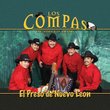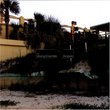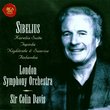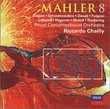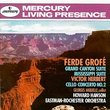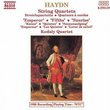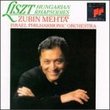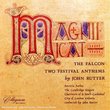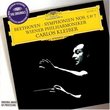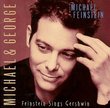| All Artists: Joshua Bell Title: Nicholas Maw: Violin Concerto Members Wishing: 0 Total Copies: 1 Label: Sony Release Date: 4/18/2000 Genre: Classical Styles: Forms & Genres, Concertos, Symphonies Number of Discs: 1 SwapaCD Credits: 1 UPC: 074646285626 |
Search - Joshua Bell :: Nicholas Maw: Violin Concerto
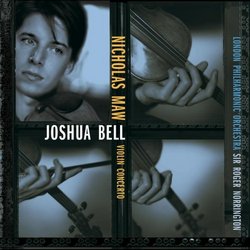 | Joshua Bell Nicholas Maw: Violin Concerto Genre: Classical
Long before the so-called "New Tonalists" entered the marketplace, British-born composer Nicholas Maw made a break with the once-reigning orthodoxy of postwar serial composers. He forged his own brand of latter-day Romanti... more » ![header=[] body=[This CD is available to be requested as disc only.]](/images/attributes/disc.png?v=15401716) ![header=[] body=[This CD is available to be requested with the disc and back insert.]](/images/attributes/disc_back.png?v=15401716) ![header=[] body=[This CD is available to be requested with the disc and front insert.]](/images/attributes/disc_front.png?v=15401716) ![header=[] body=[This CD is available to be requested with the disc, front and back inserts.]](/images/attributes/disc_front_back.png?v=15401716) |
Larger Image |
CD DetailsSynopsis
Amazon.com Long before the so-called "New Tonalists" entered the marketplace, British-born composer Nicholas Maw made a break with the once-reigning orthodoxy of postwar serial composers. He forged his own brand of latter-day Romanticism, while still finding ways to incorporate aspects of atonality into a potent personal style. Since then Maw has remained an intrepid individualist, creating a body of carefully crafted, substantial, rapturously lyrical works--from the busy poetry of Ghost Dances to the much-anticipated opera-in-progress Sophie's Choice. The Violin Concerto is quintessential Maw: patient in its unfolding, masterfully proportioned, symphonic in scope. Even more typical is the way Maw recuperates idioms of the past--the grand Romantic violin concerto--with an extraordinary freshness and honesty of vision so often lacking among the now-trendy New Tonalists. Like his nearly-100-minute Brucknerian symphony Odyssey--Simon Rattle's fine recording of which is sadly out of print--the Concerto spins out long-limbed themes that mix memory and desire (with a knowing nod to Berg's own Violin Concerto). Maw wrote the piece for Joshua Bell, whose lush but disciplined tone and emotional weight indeed make perfect advocacy for this concerto. From his entrance in the prelude, Bell opens the curtain with a profoundly elegiac air that spills into a highly charged scherzo (despite being the longest movement, it never feels disproportionate) followed by a slow movement of floating beauty and finally reaching a musical delta that seems unstoppable in invention and showcases Maw's magical command in writing for large orchestra. Roger Norrington leads the London Philharmonic with breadth and deep focus. This is an important work and very highly recommended. --Thomas May Similar CDs
Similarly Requested CDs
|
CD ReviewsA modern concerto not to be missed! Julio Castro Karg | Guadalajara, Jalisco Mexico | 01/21/2004 (5 out of 5 stars) "I've recently bought this recording. The only clues as to what to expect from it came from a very enthusiastic recommendation from an old aquaintance and also from the usually dependable reviews from both the Gramophone and Penguin guides.I was not at all familiar with Maw's work so I was completely unaware of what kind of music to expect from him. For some reason I was expecting something in the style of other contemporary british composers like Turnage or Adès, but I was surprised to have found quite a different sort of composer in Maw!This concerto is certainly lyrical and in many ways quite romantic too, but it does sound undoubtedly contemporary! But being "contemporary" doesn't necessarily make this a difficult concerto to listen to, no way, as a matter of fact I found it quite friendly and easy to like.Joshua Bell's playing is superb, he gets your attention and interest from the very opening and remains that way up until the last bars.This is a contemporary concerto to cherish and enjoy! Give it a try!" Maw Scores Big (Again) Thomas F. Bertonneau | Oswego, NY United States | 10/01/2000 (4 out of 5 stars) "Nicholas Maw composes slowly and has therefore presented himself to the public through a few works only. An Argo LP from the 1970s offered his "Life Studies" for string orchestra, Bergian in their language, which is to say: marginally atonal and expressive while communicating an obvious and comprehensible sequence of emotional states and progressions. Maw really scored big (in every sense of the phrase) with is "Odyssey," released at the beginning of the 1990s by EMI as part of their British Composers series. (It is, unfortunately, no longer in the catalogue.) "Odyssey," to describe it briefly, is a ninety-plus minute orchestral work in six parts but played without break. It represents Maw's "rediscovery" of tonality and owes something (but not decisively) to earlier twentieth century composers such as Shostakovich (Fourth Symphony) and Walton (First Symphony). But Maw is sui generis. The comparisons don't tell you much. Sony has now published Maw's Violin Concerto, in four movements, from 1993, played her by Joshua Bell as soloist the London Philharmonic under Sir Roger Norrington. Like "Odyssey," the Concerto is a big work, symphonic in concept, undoubtedly "modern" but just as comprehensible (and beautiful, in its rugged way) as the earlier score. The quite conscious model of the Concerto is the Brahms Second (for piano). It would be perfectly fair in Maw's case as in Brahms' to say that this is really a symphony with an important concertante part for the soloist. The sequence of movements - slow, fast, slow, fast - suggests the seriousness of the overall mood. Maw likes to "evolve" his music and its themes and textures out of basic cells, introduced with an improvisatory or preliminary feeling at the beginning of a work. That is what happens here, as, in the opening "Prelude," against a bass-register grumbling in the orchestra, offers the pregnant intervals out of which the great tapestry will be woven. The horns have an important role in Maw's sense of orchestral color. The first horn participates as a kind of second soloist in the "Prelude." The second movement is a scherzo, full of subterranean energy breaking occasionally through the surface of the music. The third movement, "Romanza," returns to the moodiness of the "Prelude." The last movement is a vast dance, in which properties of the first three movements are transformed. Something of a Franckian journey from darkness to light has taken place, although in Maw the light at the end of the journey is not unadulterated by shadow. Given the propensity nowadays of recording companies to offer new CDs briefly and then delete them from the catalogue, it would be wise to get this one while it remains in the bins. Look closely under "M." Joshua Bell's name is more prominent on the booklet than the composer's, and the words "violin concerto" appear in smaller print than the proper names. The measure is somewhat short, a mere forty-one minutes. The entire "Life Studies" might have been" Good yes, but great? Ryan Morris | Chicago, IL | 02/26/2008 (3 out of 5 stars) "I wonder how opinions of this concerto vary between people who read the liner notes and those who did not. Unfortunetly, I read them. They are the single most pompous, delusional, and (consequently) destructive notes to a release I have ever read. Who could they possibly be aimed at? Just to set things straight, Maw is suggested to be Brahms reincarnated, comparing the to at least six times. Really comparing them as composer equals and suggesting this concerto takes its supposed rightful place alongside the likes of, and I quote, "Maw's concerto for violin and orchestra (1993) clearly belongs in the company of the great lyrical concerto's of Beethoven (!), Mendelssohn (!!), Brahms (!!!!!), Berg (!!!!!!!!), Stravinsky (!!!!!!!!!!!!), Prokofiev (!!!!!), Walton(!!!!), and Barber (!!!!!!!!!!)." It continues...."It seems that Maw may indeed be the greatest living master of the romantic aesthetic, a Brahms for our time."
The next paragraph begins...... " Like Brahms, Nicholas Maw..." several sentences later..... "Maw (like Brahms).....is a prophet for a new generation(!!!!!!!)......" If you still arent as flabbergasted as I was upon reading this it then goes on to say that because Schoenberg saw in Brahms a great source of inspiration so consequently "Nicholas Maw's music is likely to have a profound effect on large-scale symphonic music of the twenty-first century." With linear-notes on this unbelievable level, this disc and work really never had a chance to be taken unbiased. My real concern is whether Maw read this beforehand and actually believes this,or if he opened it up after release and thought to himself, "I am screwed". Either way, this concerto must now be judged on what it presupposes to be---one of the greatest of all time----which it is not.....by a longshot....It is unfortunate because it is good. Among the conservative school in our modern world it is one of the better concerto's I have heard lately----but that is a very specific and small school and even then it is not the best. Maw's music is wonderful. I prefer the Odyssey, with Rattle at the helm of the CBSO to this piece and also Maw's miniature Life Studies, Piano Trio, Ghost thingy. They are all better examples of Maw's true aesthetic, which is not as romantic as this concerto suggests---it is a modern violin concerto that will appeal to much of the remaining classical masses---which I believe is a good thing----I mean, any modern piece of music that will attempt to alleviate the chaotic situation of the Boulez school and try to bring audiences back cant be that bad a thing. I wish I never read the linear notes because it made me study this piece under more scrutiny that it could take, and I suppose that any paid critic would feel the same way. I do recommend it still as an example of accessible modern music." |

 Track Listings (4) - Disc #1
Track Listings (4) - Disc #1

